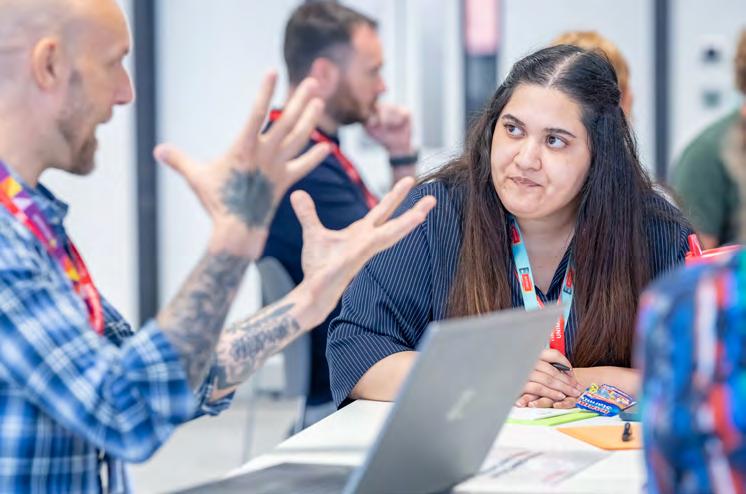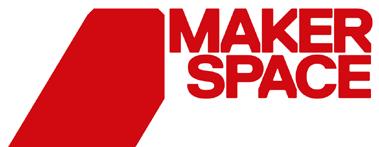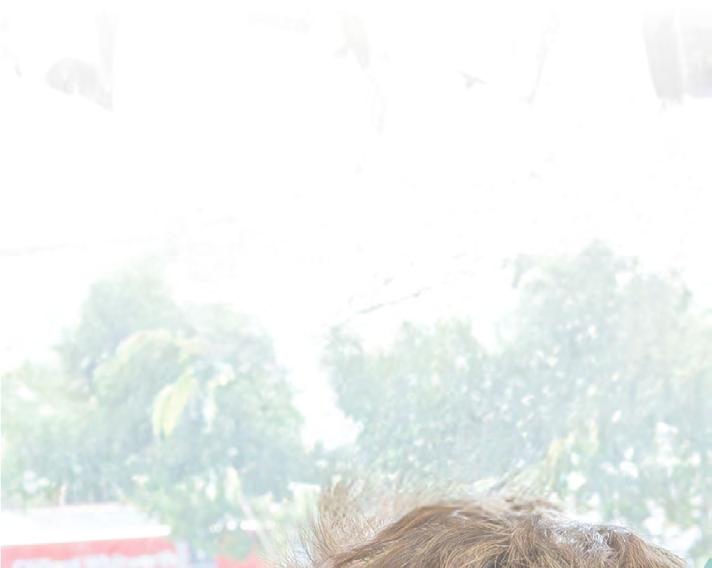
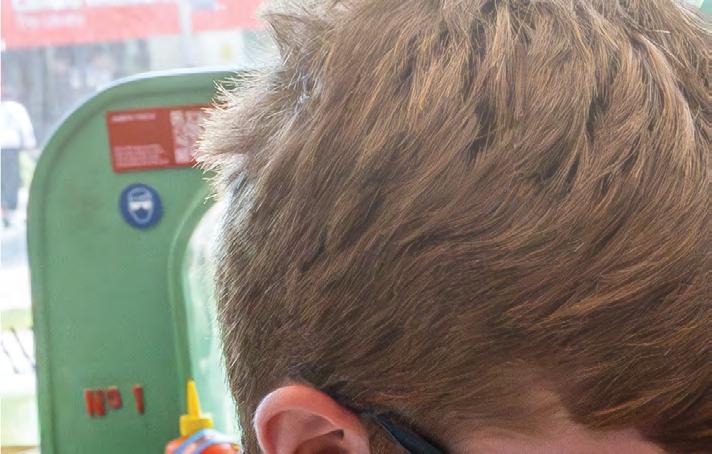



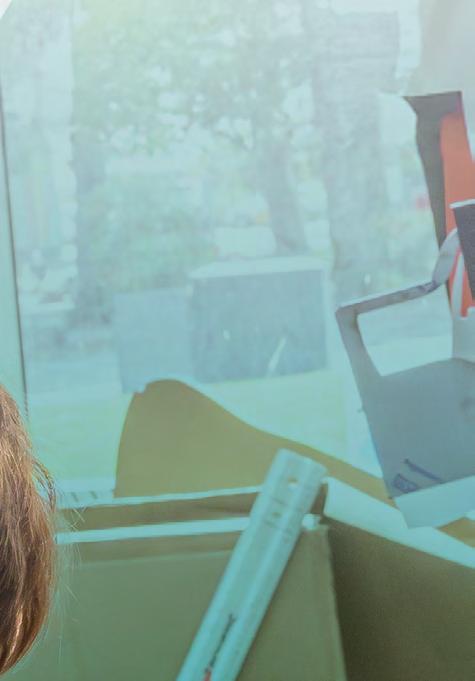
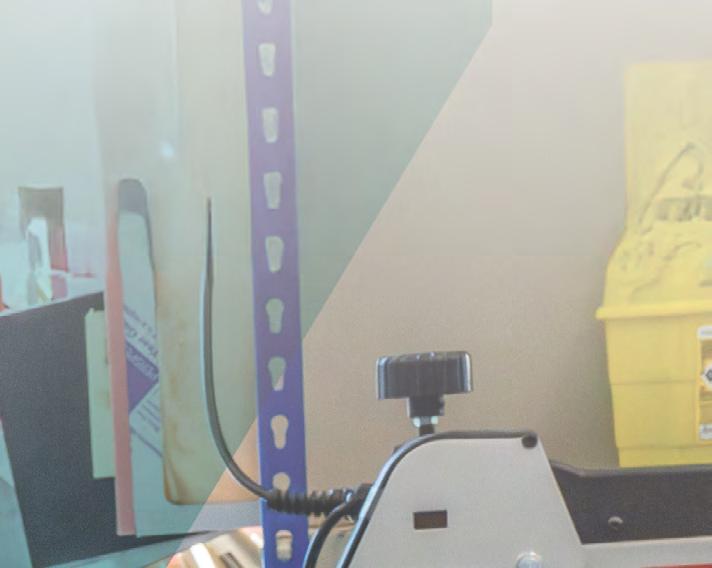


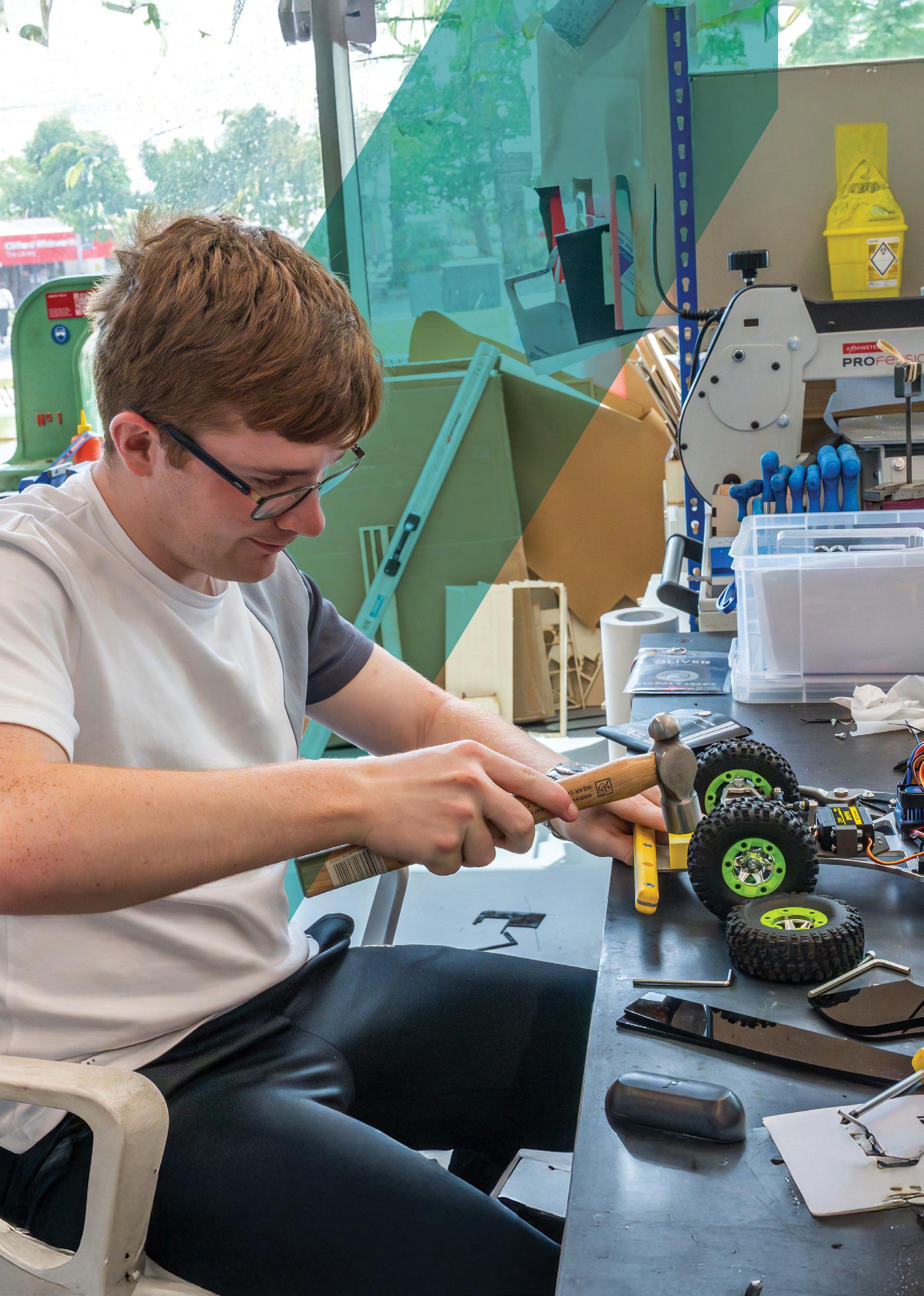











HIGHLIGHTS 24/25

/ Morson Group STEM Foundation
/ Maker Space Impact Report
/ Student Engagement

/ Curriculum Integration
/ Research Communications
/ Community Outreach
/ Unimaker 25 Conference




At the heart of the University of Salford, the Morson Maker Space is more than a technical workshop. We don’t just use cutting-edge tech - we live it.
It is a launchpad for future pioneers in STEM sectors. This dynamic environment empowers students to explore digital fabrication and real-world problem solving as part of their university journey.
Equipped with cutting-edge tools and technologies, the Maker Space bridges academic learning with realworld industry practice. Students can design, build, test, and refine ideas by transforming theory into hands-on experience while gaining the skills and confidence to succeed in their chosen fields.
Maker Space skillsets are hands-on and practical. We enable individuals to become problem solvers, sharp critical thinkers, and fearless innovators and support students to take risks, embrace setbacks, and treat failure as fuel for growth. In this way, they become skilled makers, adaptable and confident makers, ready to tackle any challenge with creativity, resilience, and conviction.
The Morson Maker Space benefits from a long-term partnership with Morson Group, a global leader in engineering recruitment and training. Our collaboration brings industry equipment, live project briefs, and expert guidance into the student experience. It ensures graduates leave with the skills and mindset needed by tomorrow’s STEM industries.
Since its 2022 launch, the Morson Group STEM Foundation has expanded rapidly, reaching more learners, influencing curriculum and creating lasting impact for students. Through scholarships, placements, school outreach, and access to advanced technologies, the foundation opens doors to students to experience meaningful opportunities in their chosen studies.
We extend our heartfelt thanks to Ged Mason and the Mason family, Morson Group, Morson Projects, and Morson Talent, and all the mentors and guests who have supported us throughout the year. Your unwavering commitment fuels ambition, ignites creativity, and helps shape brighter futures for our talented students.

Dr. Maria Stukoff
Maker Space Director, University of Salford
The Morson Maker Space exemplifies how the University of Salford is
The Morson Maker Space is a 300-squaremetre, state-of-the-art digital fabrication facility located in the School of Science, Engineering, and Environment (SEE) building. It is equipped with industry standard machinery, ranging from manual tools to rapid prototyping equipment and heavyduty machines.
MORSON ENGINE ROOM
/ OMAX Maxiem 1515 Waterjet cutter with 5-axis head
/ Hass UMC-500 5-axis milling machine
/ Haas ST-15Y CNC lathe with Y axis and live tooling
/ AXYZ Flat-bed CNC router for timber and light metals
/ AC/DC TIG Welding booth
3D PRINT HIVE
/ Fused Filament Fabrication (FFF)
/ Multi-filament printing
/ Stereolithography Resin Printing (SLA)
/ Selective Laser Sintering (Formlabs Fuse SLS)
/ Metal printing (Metal X ADAM)
/ Mayku Multiplier Pressure Former
LASER CUTTING
/ Epilog Fusion CO2 and fibre laser cutters
ELECTRONICS & INSPECTION
/ Electronics development area
/ Digital and optical microscopes
/ Manual metrology instruments
/ Nikon Altera 10.10.8 Coordinate Measuring Machine
/ EinScan Freescan UE Pro & Einstar 3D scanners
CAD SUITE
/ 14 x high powered computer terminals
/ Software including Autodesk Fusion, SolidWorks, ANSYS, and Adobe Creative Cloud
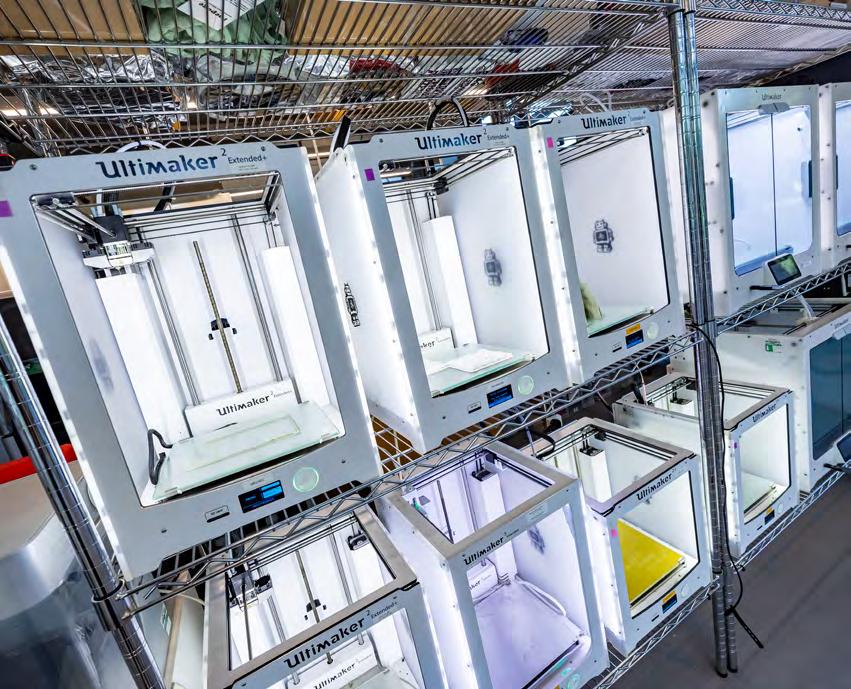


Thanks to all the technical equipment available in the Maker Space, I was able to learn and apply my coursework to actual manufacturing projects!
Engineering Student

As the Morson Maker Space approaches its 10-year partnership with the Morson STEM Foundation, we commissioned an independent Impact Report to assess its influence on student learning, confidence, skills development, employability, and widening participation.
The report established the Maker Space’s vital role in breaking down barriers to STEM education, highlighting clear gains in student engagement, practical skills, career readiness, and community outreach. Andy Hassall, Director of Business Development at Morson Projects, stated, “The Maker Space is no longer optional. It’s essential.”
Students credit the space with accelerating their growth and bridging the gap between academia and industry. One student said, “I learned how to work like an engineer, not just a student.” The report identified 10 key benefits, including applying theory to real-world technologies and mastering diverse design and manufacturing skills.
1. New technologies: Hands-on experience with cutting-edge tools.
2. Social connections: Fosters interaction between diverse students.
3. Manufacturing knowledge: Learn manufacturing processes and iterative design.
4. Enhanced learning: Deepens understanding of theoretical concepts.
5. Transferable skills: Develops teamwork, communication, and problem-solving.
6. Increased employability: Enhances attractiveness to employers.
7. University reputation: Improves graduate competitiveness.
8. Personal projects: Explores creative interests.
9. Research Communications: Supports research, leading to higher-quality publications.
10. Attracts sponsorship: Enhances marketing profile and attracts sponsors.
The Maker Space is open to all students and staff and provides a valuable resource for the University community and a space nowhere else found on campus to experiment with ideas It’s a remarkable asset

The Morson Maker Space is reshaping how students engage with STEM driving innovation, inclusion, and realworld learning from the ground up. Purpose-built to be accessible and student-led, it fosters practical experience, with a strong focus on supporting underrepresented groups and increasing female participation in STEM.
Through the Morson Group STEM Foundation, we connect education with industry, offering outreach, mentorship, and activities that foster an inclusive environment where students belong. From primary pupils to university learners, we equip them with skills to thrive in today’s digital world.
More than a facility, the Maker Space empowers students to take charge of their learning - operating machinery, solving real problems, and working independently. Its inclusive, student-first approach removes barriers, builds capability, and inspires lasting engagement with STEM.
Morson’s commitment to STEM goes far beyond traditional skills training. Through its Foundation, the Group invests directly in local talent, building stronger, more diverse pipelines and opening pathways for young peopleparticularly within the local community - to step into STEM careers.
As a global leader in engineering recruitment, consultancy, and training, Morson is reshaping how students connect with STEM. By nurturing talent from early years through to higher education, the Foundation is future-proofing the workforce and strengthening the industry’s long-term sustainability.
The Morson Maker Space exemplifies an inclusive approach, notably empowering female students by fostering confidence, creativity, and belonging. Feedback indicates lasting improvements in resilience, technical skills, and transformative learning - key qualities for future innovators.
From primary schools to universities and early careers, the Morson STEM Foundation supports lifelong STEM pathways. Its projects are crucial in breaking down barriers, increasing participation, and inspiring the next generation of STEM talent.

Access to the Maker Space is no longer optional - it’s essential. We see a clear transformation in students who engage with it.
I wish I had such a facility when I studied Engineering! It’s a blueprint for how students should engage with their studies and learn by doing.

IntoUniversity, supported by Morson, provides long-term STEM educational support to disadvantaged young people, promoting social mobility. Through Maker Space workshops and classroom visits, we inspire them to pursue STEM pathways.

Morson Group’s in-house STEM Ambassadors work with local communities and schools to engage and inspire young people to study engineering. The partnership with Primary Engineer has already supported over 1,000 pupils to explore STEM skills.
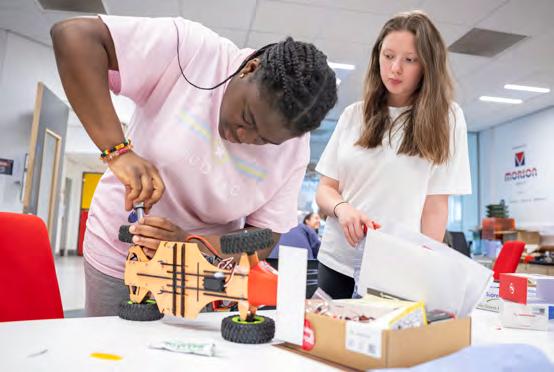
This three-day summer school for Year 12 students across Greater Manchester introduces engineering principles through electronics and design, as they build remote-controlled cars while developing practical skills in digital fabrication in the Maker Space.

Go Beyond is a mentoring and coaching programme for female STEM students, linking them with industry experts. Through workshops, mentoring, and an annual STEM summit, it builds confidence, career skills, and industry insight to help students thrive.

Launched in 2016 in memory of Morson founder Gerry Mason, the Engineering Scholarship supports aspiring engineers with financial, personal, and professional assistance. Backed by the Mason family, it has helped over 54 Salford students pursue their degrees.

Salford Racing, sponsored by Morson Projects, unites University of Salford students to compete in Europe’s leading IMechE Formula Student competition. Morson supports the team with workshops, mentoring and guidance to design and build a prototype race car.
CULTIVATING COMPETENCE AND CAREER ADVANCEMENT BY NURTURING TRANSFERABLE SKILLS FOR LIFELONG SUCCESS.
Alongside our core workshops and training modules supporting curriculum and providing project support for both undergraduate and postgraduate courses, the Maker Space also runs the Student Instructor Programme.
This initiative gives students the opportunity to take on leadership roles extending access, supporting peers, and developing valuable real-world skills. Through the programme, Student Instructors gain technical and professional experience while contributing meaningfully to the Maker Space community.
/ Priority access to specialist training
/ Paid work on live commercial briefs
/ Acquired time management and people skills
/ Bolster CV showing team leadership
/ Increased employability with transferable skills
/ Branded Instructor hoodie to be part of the team
Student Instructors keep the Maker Space open between 4:30–7:30 pm two days a week in term time, extending access beyond class hours. By managing evening sessions, they foster an inclusive, well-supported collaborative environment.
Instructors assist fellow students with equipment such as laser cutters and 3D printers, helping them build confidence and technical competence in a relaxed and supportive setting.
Instructor Responsibilities
/ Manage the Maker Space independently
/ Assist with equipment set up and usage
/ Ensure health and safety compliance
/ Provide project guidance to students
/ Cultivate an inclusive environment
The Student Instructor Programme extends access to tools and spaces beyond standard hours, allowing more students to benefit from the Maker Space. It builds a peer-led learning culture and gives instructors valuable leadership, communication, and technical skills, while promoting inclusive, hands-on engagement in engineering.
As one instructor put it, “I love working with my hands. Being a Student Instructor lets me share that passion and help others who feel the same.”

Student Instructor
The sessions helped me structure my week. I could stay on campus, get extra work done, and then start my instructor shift in the evening. 8
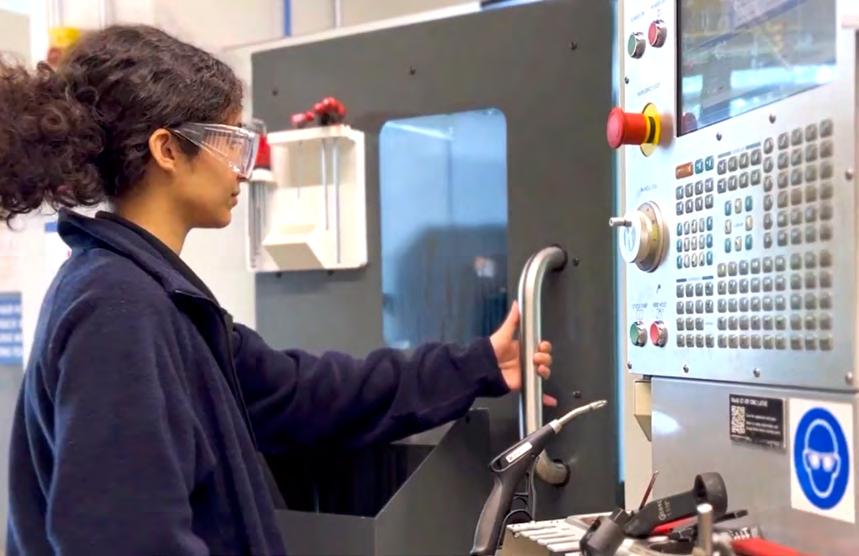
The IMechE CADathon 2025 was an exciting oneday design challenge, hosted at the Maker Space. The event invited students to showcase creativity, technical skills, and problem-solving in a fast-paced environment.
Co-hosted with the IMechE Greater Manchester Young Members Panel and sponsored by Morson Projects, the region’s first CADathon brought aspiring engineers together for teamwork, creativity, and real-world problem-solving.
Inspired by UN Sustainable Development Goal 9 – Industry, Innovation, and Infrastructure, teams of three to four students from the University of Salford, the University of Manchester, and Manchester Metropolitan University were challenged to design a sustainable solution for residential housing.
Over eight hours, teams ideated, modelled, and pitched their concepts to industry professionals with solutions needed to balance creativity, sustainability, and cost-effectiveness mirroring the real challenges engineers face in today’s world.
Judges from industry evaluated the projects based on innovation, feasibility, and impact. The University of Salford’s own team, the Sketchy Boyz, took home first prize with their green wall design aimed at improving indoor air quality and reducing energy consumption.
Beyond the competition, the CADathon proved to be a platform for professional growth and peer connection.
The CADathon was intense but rewarding. Working under pressure, getting feedback from real engineers, and seeing our design come together was amazing. Winning was just the cherry on top!
Sketchy Boyz, Salford University
Salford Alumni returned to mentor current students, reinforcing the value of building community and pathways from engineering education into engineering sectors.

The Morson Maker Space transforms research into real-world impact, turning complex ideas into prototypes, installations, and interactive workshops that engage and inspire.
With advanced facilities, expert staff, and a collaborative ethos, we help researchers bring discoveries to life while making science accessible to all. These creative projects spark curiosity, build trust, and inspire future generations, taking science beyond the lab and into everyday life.
From innovative prosthetic limbs to drone workshops exploring radioecology, the Maker Space has delivered diverse public-facing projects that reimagine how people connect with STEM.
By amplifying research visibility and encouraging participation, we bridge the gap between research and society - ensuring innovation is not only understood but experienced, trusted, and transformative.
The installation acted as a hook to draw in people’s interest and facilitated many exciting conversations between the researchers, the workshop coordinators and the public. A wider impact has been the use of the drone installation for university recruitment activities. This has proven extremely popular with prospective students.
Research Professor



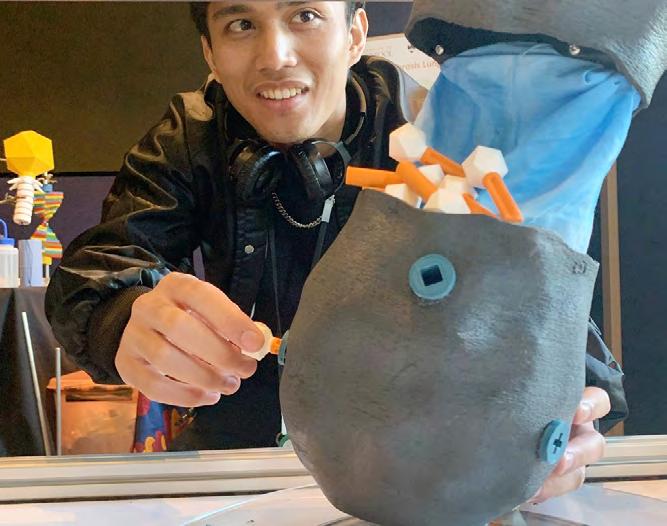


Research supported by the Maker Space:
/ Civil Engineering: Testing and inspection support for graphene infused concrete.
/ Mechanical Engineering: Manufacturing of 3D resin-printed prototype nozzles produced for the Spray Research Group using precise photopolymer layering cured with UV light.
/ Built Environment: Created custom 3D-printed sensors and rainwater systems for Energy House 2 to monitor ground temperatures.
/ Acoustics: Created a 1:12 acoustic scale model of Stonehenge using a mixture of 3D printing and specialised moulding offering researchers insights into how sound may have shaped ancient experiences at the monument.
/ Microbiology: Microbial Puppet Masters creating giant 3D-printed bacteria models show how phages infect microbes.
/ Life Sciences: Designed and 3D printed prosthetic flippers to restore injured sea turtle mobility.
/ Health Sciences: Supporting cutting-edge prosthetics and orthotics research, developing devices leading to patented designs that enhance mobility, rehabilitation, and quality of life for users.
/ Human Geography Agritech: Supported the use of FarmBot for the Living Laboratory - research bringing robotics into urban farming.
/ Applied Ecology: Created a 3D wildlife map and drone workshop bringing radiation science and biodiversity research to life.
/ Robotics and Tooling: Supporting a novel prosthetic ankle with advanced electromechanical control.
Working with the Maker Space and testing the FarmBot was an effective way to grow food and show considerable time and water savings, this allowed me to try something new using robotics adding a layer of depth to my work.
Student Researcher
Powered by the Morson Group STEM Foundation, we proudly embed Science, Technology, Engineering, and Mathematics into our Maker Space, technical expertise. This approach fosters innovation, promotes inclusivity, and equips pupils with the curiosity to explore, experiment, and learn new skills. The Maker Space offers an environment where young people can actively explore what STEM is about, preparing them to thrive in an increasingly complex world.
Primary Engineer® is a UK-based non-profit organisation dedicated to bringing engineering into classrooms by connecting schools with engineering and technology professionals. Through its flagship Rail Programme, the Morson Group STEM Foundation and Morson Maker Space partnered with Primary Engineer to deliver hands-on classroom projects aligned with the national curriculum.
Rail Programme
This initiative provides teacher training led by Morson Projects’ STEM Ambassadors, along with full project kits and digital resources designed to enrich learning and create meaningful real-world connections. Over seven weeks, teachers guided Key Stage 1 and 2 pupils through the Rail Programme, building model rail vehicles and engaging directly with core engineering principles.

This is an amazing opportunity for our pupils that we would not have been able to provide without the provision of the engineers and these resources.
Morson Group’s in-house STEM Ambassadors bring lessons to life showing how engineering is an exciting part of everyday life. As judges, they work with pupils to test automatic vehicles for speed and cargo capacity, while non-automatic vehicles were rolled down a ramp to reach a target bringing a real-world dimension to learning.
The Primary Engineer Rail Programme gives schools a real-world opportunity to engage with engineering, supporting teachers to embed STEM skills in the classroom. Over three years, the partnership has made the following local impact:
/ 45 schools reached / 2,773 pupils engaged


Fantastic delivery from the trainer and the Morson engineers were engaging and very enthusiastic which definitely helped.
St Mary’s RC Primary

100%
Of teachers who said they will be able to use what they have learnt to develop engineering skills in the classroom
100%
Of teachers report a better understanding of the diversity challenges in engineering
100%
Percentage of teachers who Agree/Strongly Agree with the following statements
100%
Of teachers see value in including engineering in the curriculum to benefit pupils in their education and their working lives 100%
Of teachers who believe training helped them understand how they can make an impact on engineering career aspirations 100%

Interacting with an engineer had a positive impact on pupil engagement 100%
My pupils have enjoyed learning about engineering
My understanding of how engineering projects can be used to deliver impactful cross-curricular learning has improved

I am more confident with the subject of engineering in the classroom
I am more willing to take part in CPD for engineering teaching
The programme helped pupils to understand that engineering is important
The programme helped my pupils learn from mistakes and try new approaches 100%
The programme has had a positive impact on pupil’s career aspirations in engineering and STEM
On 26-27 June 2025, the University of Salford proudly hosted Unimaker, the UK’s Academic Makerspace Conference. The two-day event brought together educators, makers, industry partners, and community trailblazers from across the country to explore the theme:
“Innovative Learning Spaces: Unlocking the Impact of Maker Spaces.” But more than that, Unimaker celebrated the maker mindset - a culture rooted in curiosity, collaboration, and hands-on learning.
We welcomed representatives from 13 universities, alongside leading voices in industry and education. The programme featured inspiring keynotes, panels, roundtables, and a vibrant marketplace showcasing student maker projects and industry tools.
Panel topics throughout the two-days ranged from teaching and employability to creative practice, inclusion, outreach, and the wider impact of maker communities including:
/ Teaching & Learning innovation
/ Health and Safety
/ Training Students to be Operators
/ Employability and Future Skillsets
/ Creative Practice & Student Belonging
/ Makerspaces as Inclusive Hubs
/ Starting a Makerspace: Equipment & Costs
/ Alumni Insights: Makerspace Pathways
/ Volunteers as Makerspace Delivery Team

The event opened with Prof. Neil Currie (University of Salford & Woolgar Hunter) asking: “Why on earth did we build a makerspace?” with a provocative reflection on purpose and impact. This was followed by Dr. Peter Mylon (University of Sheffield + iForge), sharing insights from launching the very first Unimaker in 2019.
Our inspirational keynote Navjot Sawhney, founder of The Washing Machine Project, a UK-based social enterprise developing off-grid washing solutions for displaced and low-income communities talked about developing the project in a makerspace and the impact this had on world communities.




We welcomed Prof. Corina Cory (University of Exeter) and Dr. Alejandro Veliz Reyes (University of Plymouth), who offered fresh perspectives on engineering, architecture, and entrepreneurship, reminding us that makerspaces are not just rooms filled with tools - they are dynamic communities fostering adaptability, resilience, teamwork, and creative problem-solving.
The conference was chaired by Dr. Maria Stukoff, with operations expertly managed by Rachel Norton and the Maker Space team Thanks also to our roundtable advocates, including a powerful student panel reflecting on how makerspace experiences shaped their studies.
Speakers and guests included representatives from MadLab, IMechE, Salford Youth Zone, Rolls-Royce, King’s College London, Swansea University, and more.

The programme also featured 15-minute lightning talks highlighting industry insights from Morson Project’s Chris Summers, equitable maker practices by UCL’s Making Spaces, and examples from Chemnitz community maker fair; Makers United
Unimaker 2025 reinforced that makerspaces are not a luxury; they are an essential, future-facing part of higher education.

